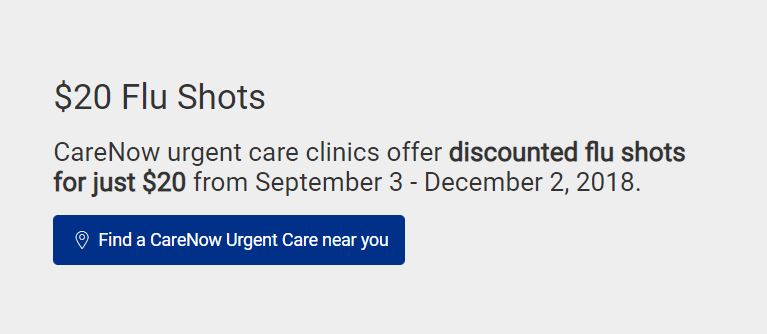Influenza, or flu, can easily turn serious or even deadly. Those most at risk for complications include older adults, children and people with chronic health conditions.
The best way to prevent a case of the flu is a yearly influenza vaccine, or flu shot.
 What is a flu shot?
What is a flu shot?

Flu vaccines help your body fight off influenza viruses. Many viruses can cause flu. Flu vaccines are reviewed yearly to be sure the one you receive targets the most common flu viruses.
A flu vaccine can be given through a shot or nasal spray. A shot is recommended for most people. Talk with a healthcare provider to decide what’s best for you.
A vaccine cannot guarantee you won’t get the flu, but it will make any flu sickness much milder.
Who should get a flu shot?
Healthcare providers recommend a yearly flu vaccine for anyone older than six months.
The flu vaccine is especially important for:
- Adults 50 and older
- Children 6 months to 4 years
- Pregnant women
- Anyone with a weakened immune system
- Residents of long-term care facilities
- Anyone with a chronic health condition, such as asthma, heart disease or kidney disease
- People who spend time with a person at risk for flu complications
The flu vaccine is not recommended for:
- Infants younger than 6 months
- Anyone who has had allergic reactions to past flu shots
- Anyone with allergies to eggs or other vaccine ingredients
- Anyone who currently has a fever
- Anyone who has had Guillain-Barré syndrome, a rare condition in which your body’s immune system attacks your nerves
When Does Flu Season Start 2018?
For the last several years, the CDC has consistently recommended you get your annual flu vaccine by the end of October.
Since most cases hit between December and February, it’s recommended you and your family receive the flu shot by the end of October or as soon as the vaccine becomes first available.
CareNow can help provide specific recommendations for those with egg allergies or other concerns.
What are the side effects of a flu shot?
It’s important to know that the flu vaccine cannot cause influenza.
Although, mild side effects are possible. They include fever, headaches and tenderness in the arm where the shot was given. Serious side effects are rare.
Any vaccine carries a very small risk of severe allergic reaction. Go to the ER if you experience difficulty breathing, dizziness, a fast heartbeat or swelling in the face.
If it’s flu season, find the nearest CareNow® urgent care clinic to get a flu shot.
Our CareNow® urgent care clinics are open seven days a week and welcome walk-in patients.











